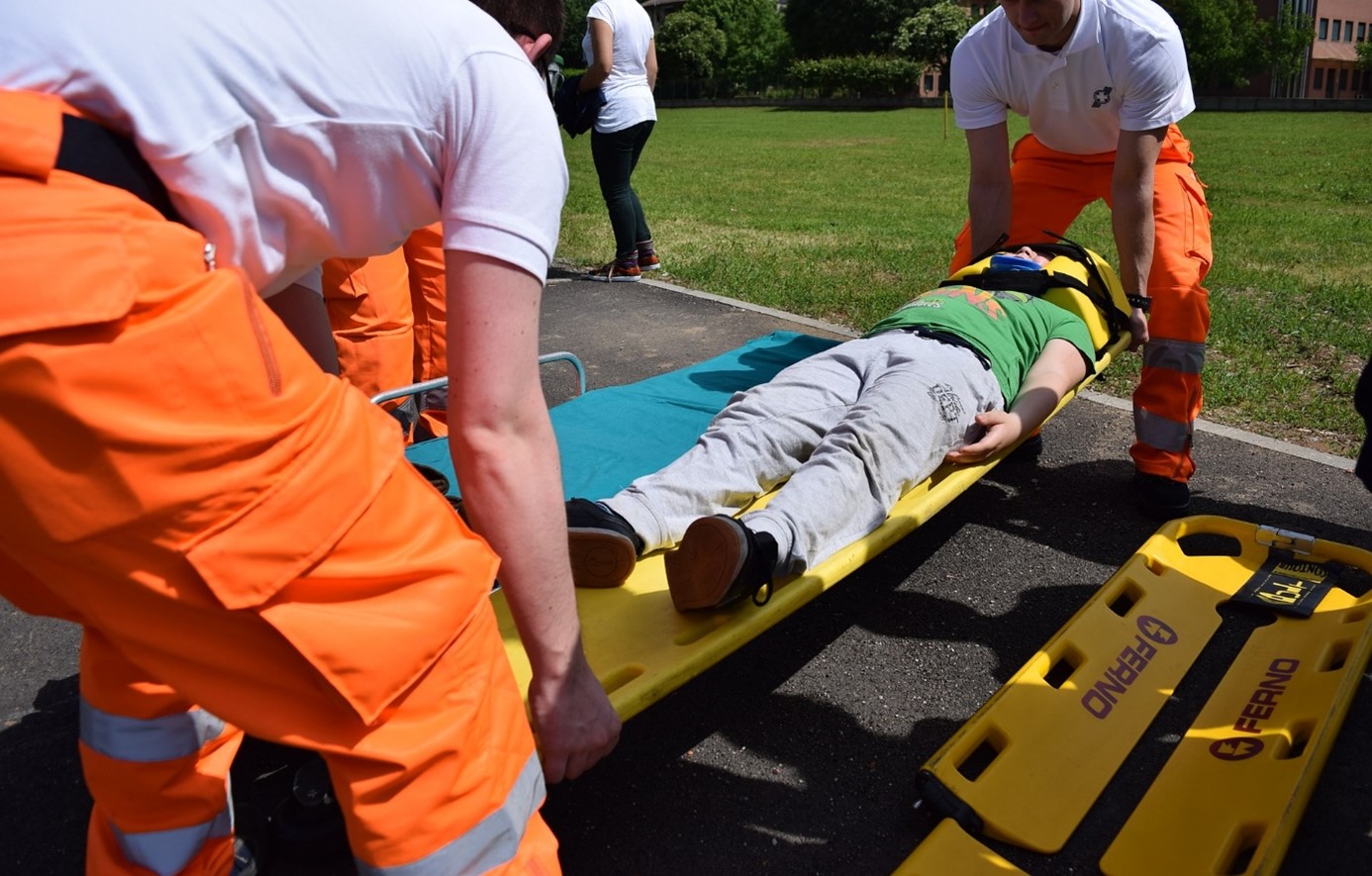Mass-casualty incidents (MCIs) with a large number of injured persons caused by human-made threats or by natural disasters as for example landslides or floods are increasing on a global level. MED1stMR thrives to better prepare medical first responders for their challenges by developing innovative mixed reality training. The first crucial step was, to investigate and understand MCIs and the specific needs for proper training in the field.
What are MCIs?
Mass casualty incidents (MCI) are incidents where the available resources are insufficient for the immediate need for sufficient medical treatment and typically involve many injured persons. In such situations, medical first responders (MFRs) need to assess the situation and perform diagnosis, basic life support and execute troubleshooting. Evaluation, estimation, determination of medical resources and decision on additional support are the key tasks that need to be organised and managed. Then a triage post location should be determined, and different commanding activities are planned. While then taking appropriate action that save lives, situational awareness and effective coping with acute stressors are essential for the MFRs.
How can you train for MCIs?
MCIs are complex and context dependent and therefore unpredictable. Train the unpredictable is a challenge as it is difficult and resource intensive (money, persons, logistics, equipment, time, risks etc.) and therefore very rare. Moreover, even if MCIs are trained (at most once a year) typically only a few MFRs of an organisation can actually participate and only one per training is in the role of the command post. A re-play for all members of a team is often too resource intensive. Trainings should involve communication, management, safety and triage for all participants. However, there are no triage standards or algorithms applicable to all MCIs and the general guidelines to train differs a lot between regions and countries.
How can MED1stMR improve the current training practices?
MFRs require the development and deployment of innovative technological solutions adapted and implemented to their needs in order to train complex situations in a realistic environment. Evidence shows that Virtual Reality (VR) is particularly useful when the training domain is complex and difficult to master. Medical training needs to be haptic and the injuries ideally follow a timeline depending on the time with and without treatment. Therefore, the MED1stMR training solution combines the technology of VR with the haptic of simulation manikins and is enhanced by smart wearables to measure the biosignals of the trainees during a training. By this, the training be modified according to the stress level of the trainees to better prepare them for the real-life incidents. A training framework including scenarios and guidelines how to integrate within a MFR organisation is also planned to be part of the solution.
MED1stMR will develop an innovative MR technology to combine medical simulators with virtual environments and smart scenario control and will focus on the following characteristics:
- MR solution including haptic manikins
- Biosignal tracking for (smart) scenario adaptions and feedback
- Easy and fast set-up with flexible scenarios (Start, stop repeat anytime)
- Cost efficient
- Including a scientific training framework and guidelines for policy makers and deciders

